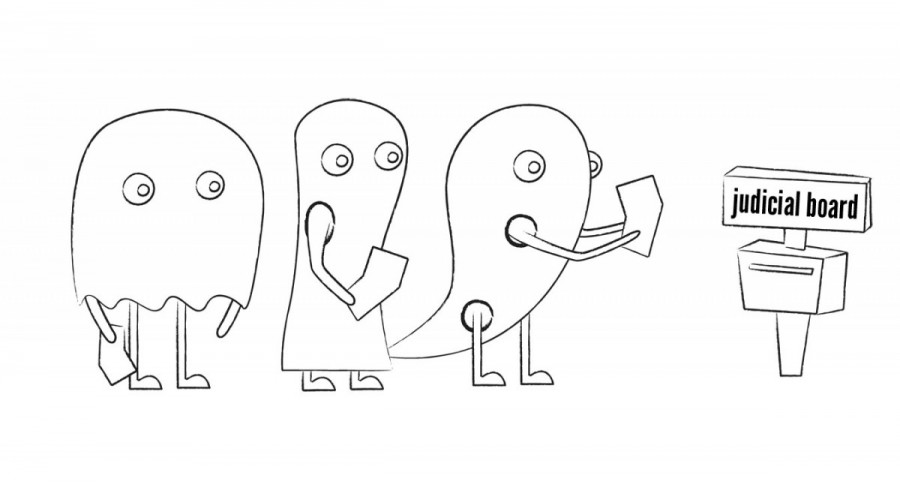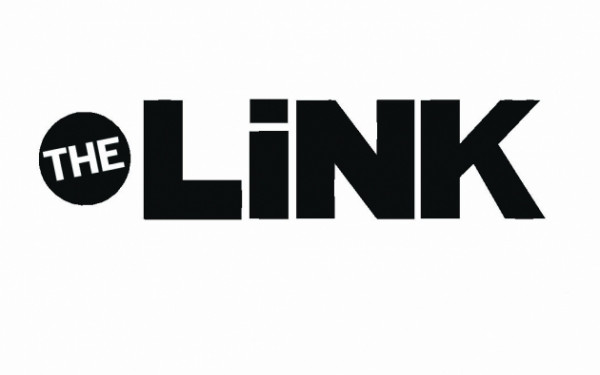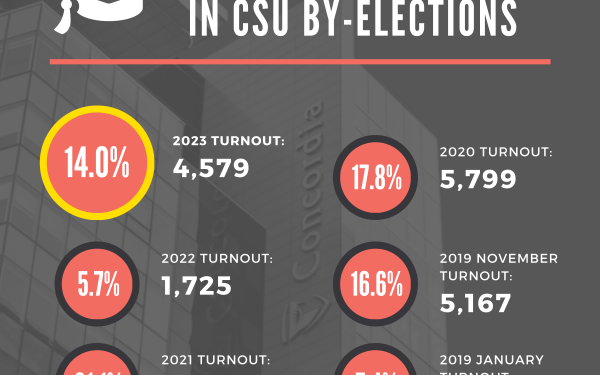Editorial
Breaks in the System
The way that student governance at this school is supposed to work—on paper anyway—makes sense:
You have your council, your chair, your secretary and your student media informing students about the politics of the day. Together, everything runs smoothly and above-board. This is how the democratic process works, theoretically.
The way that student governance at this school is supposed to work—on paper anyway—makes sense:
You have your council, your chair, your secretary and your student media informing students about the politics of the day. Together, everything runs smoothly and above-board. This is how the democratic process works, theoretically.
But when a cog breaks down, students lose. And when all the cogs break down it becomes the boondoggle we saw last week.
The first cog to break was the union.
For starters, some councillors appear to not be doing their jobs. With five spots on a 27-person council unfilled, students are already under-represented. Then, when another four councillors don’t bother to show up to the meetings, or decide to simply sign the roll call, grab a slice of pizza and take off without even saying goodbye, you have to ask: how seriously are they taking this job?
A healthy council features a balanced representation of students. Currently, an entire faculty at Concordia—the John Molson School of Business—is not being represented. Right now there are three JSMB members on council who are one missed meeting away from being ejected. If they miss one more before the byelection rolls around at the end of November, there will be nine empty seats.
That’s one-third of council gone.
Another broken cog involves the executive team that came into power on a platform of transparency—yet can’t manage to get their minutes or numbers online. It’s been four months and counting since students got their last update.
The student union documents are notoriously unkempt, undermining the students’ ability—and their right—to easily access what has happened at the highest governing student body.
This week was a prime example of how important good documentation is. When the union searched for proof of the legitimacy of the Chief Electoral Officer Bram Goldstein and his predecessor Oliver Cohen, they came up empty.
No record of Cohen’s resignation can currently be found on paper, and this document is necessary to legitimize Goldstein’s role—as well as the entire byelection slated to take place at the end of the month.
Also, it’s worth noting that there must have been a better way to handle what has become a CEO-gate.
If, a few months ago, there had been any indication whatsoever that the appointment of Goldstein was questionable and didn’t follow procedure—which CSU President Lex Gill admitted—the CSU should have given him a heads up.
Goldstein deserved the courtesy of knowing his job was on the line. It’s quite simply the decent thing to do. Finding out three weeks before a byelection is shitty timing for everyone.
Finally, it’s imperative that students are aware of all of the shenanigans going down on council. One of the best ways to access the meetings is the online live-stream provided by CUTV—well, it used to be.
The stream promised to offer students unfettered access to council meetings, giving them the ability to keep both councillors and the executive accountable, in addition to keeping the union technologically up-to-date.
And if somehow, the minutes go missing, having a record of the meetings on the CUTV website becomes even more crucial to democracy at this school.
The initiative started as a ‘pilot’ but the live broadcasts need to continue if CUTV deserves any more student money for their fee levy.
CUTV has stated that training their volunteers and creating programming is their number one priority, but it is imperative they film these meetings. It is fundamental to the democracy at Concordia and should also be fundamental to their mandate.
Let’s not forget that CUTV had to fight hard for permission to air live broadcasts of council in the first place. They cannot take their duty to students for granted in this regard.
While CUTV claims that filming council is a “side project,” that their equipment is burnt out and that their funding goes to programming, they need to prioritize filming the meetings—their live-streams were an essential service for our democracy and has revolutionized the accessibility of student governance.
What it comes down to is that the public record should be more than just in-session tweets from our Editor-in-Chief.
The cogs are broken, but it’s still early enough in the year to deal with these issues before the machine breaks down entirely.





